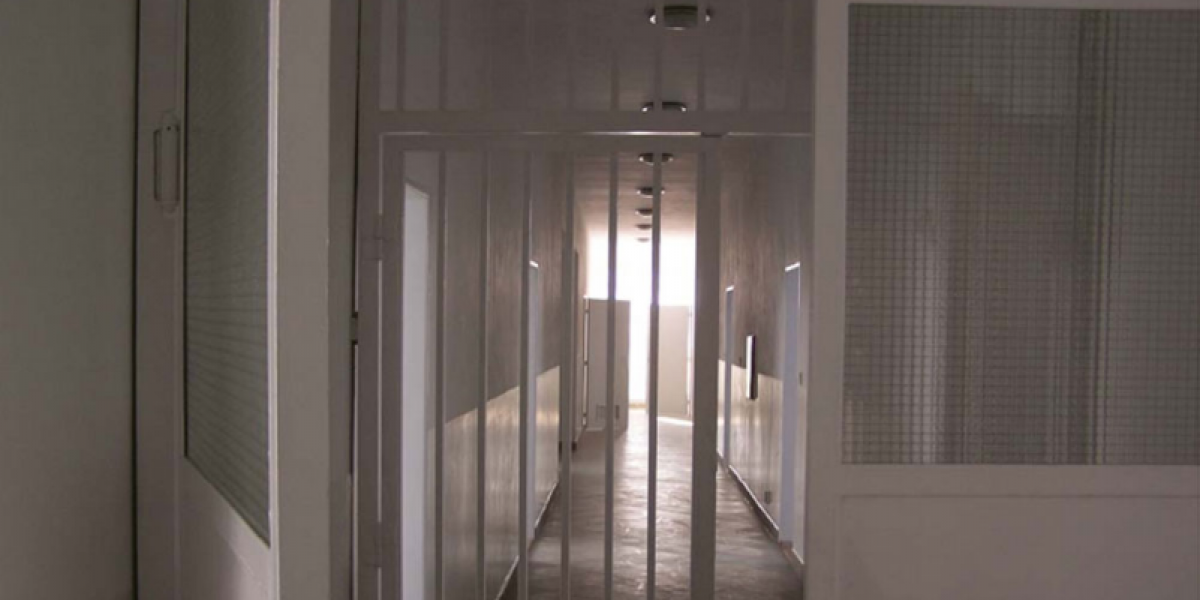Ireland: Offering Support to Detained Migrant Women
10 July 2013|Kate Putney, JRS Europe Communications Officer

“Someone’s first reaction to being held in Ireland under immigration detention is one of dreadful shock at being brought to prison – it frightens them”, said Sr Majella Dennehy PBVM, who has been making weekly visits on behalf of the Jesuit Refugee Service to migrants held in the Dóchas Centre women’s prison in Dublin since 2007.
Despite the negative effects on the detainees’ well-being, the 1996 Refugee Act (and subsequent amendments)provided wide ranging powers of detention to state officials. In an effort to control undocumented migration, legislation permits the detention of undocumented migrants, and in some cases of asylum seekers, for having entered the country without valid travel documents, even if trafficked, and for the purposes of deportation.
Even though the number of people detained for migration-related reasons is extremely small, 2.8% of the total 13,952 in 2011 according to the Irish Prison Service and that this number has been dropping in line with the decreasing number of asylum applications, the difficulties detainee migrants are forced to endure have not improved. In an inspections report of Irish prisons released last week, the Inspector Judge Michael Reilly said he has “concerns” about conditions in the Dóchas Centre women’s prison and plans to release a separate report on the center later this year.
Psychosocial Effects
There are no purpose built detention centers in Ireland, so those held for migration-related reasons are imprisoned with people convicted of criminal offences. This is viewed by many migrants as a violation of their dignity and, in general, as unjust.
“Migration detention deprives people of their freedom and adds to the suffering that some have endured in their home countries. Detainees in Ireland are held in prisons which is an added strain and worry. They get very upset about being in prison and insist they’re not criminals”, Majella explained.
“When they arrive in Dóchas, the women are often aggressive, angry, afraid and agitated. They may have suffered at home because of a political situation, family problems or from religious persecution. They may have been trafficked into the country against their will. They’re often traumatized and in despair. They feel trapped”, Sr Majella continued.
Since a person is detained involuntarily, detention is experienced as punishment rather than the administrative procedure it was designed to be. JRS and other studies demonstrate that detention has a profoundly negative effect on most people, frequently causing psychological problems long after the person has been released. The majority of detainees report suffering from some physical or psychological ailments as a consequence of their incarceration.
The 2010 JRS Europe report, Becoming Vulnerable in Detention, outlines how the deprivation of liberty “has a distinctively deteriorative effect upon the individual person. The prison-like environments existing in many detention centers, the isolation from the ‘outside world’, the unreliable flow of information and the disruption of life plans lead to mental health impacts such as depression, self-uncertainty and psychological stress, as well as physical health impacts such as decreased appetite and varying degrees of insomnia”.
Advocacy
It is for all these reasons that detainees, more than other groups of asylum seekers, need a link to the outside world, a link to the officialdom. This is the role that Majella, with her weekly visits to Dóchas, has tried to play over the last six years. “I see my role as a support, as a link between the women in detention and the prison staff. I think my visits help to relieve some of the stress, fear and anxiety they’re feeling”.
Majella also provides practical assistance to the women, by liaising with lawyers, social workers and specialized NGOs, such as Ruhama which supports women affected by prostitution and human trafficking, making sure they receive appropriate assistance.
Following their release from detention, the need for assistance does not vanish. Majella continues to assist the women where necessary and possible. For those who apply for asylum, she visits them in their state-designated accommodation centers in Dublin, helping them to integrate into Irish society and putting them in touch with organisations offering support. In other cases, her assistance has even been known to stretch beyond the national borders. In one instance, she contacted colleagues in France to assist a woman asylum seeker who was being returned there.
Without this day-to-day contact with women in detention, JRS Ireland staff would not be aware of the realities of detention for migrants, which makes it possible for the organization to undertake advocacy from a practical, rather than theoretical, perspective. It is this type of knowledge which convinced the organisation of the need to undertake systematic research on detention, which has not only demonstrated the disproportionate costs of detention in terms of well-being, but also highlighted the clear alternatives available to the authorities.
“It is unnecessary to detain migrants because non-custodial alternatives to detention exist. Many countries have successfully developed alternatives to detention, particularly non-custodial and community based models”, explained JRS Europe Advocacy and Communications Coordinator, Philip Amaral.
There is now a growing movement in Ireland against the institutionalization of people. It remains to be seen whether the Irish government will listen to people working on the ground like Majella and implement policies which reflect human dignity within the context of migration management.



